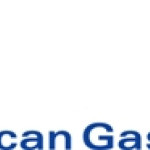- Industry: Energy
- Number of terms: 18218
- Number of blossaries: 1
- Company Profile:
The American Gas Association represents local energy companies that deliver natural gas throughout the United States.
In mining industries other than petroleum, the amount of reserves estimated to be available once additional development expenditures are incurred.
Industry:Energy
In rate base determination. See ORIGINAL COST, HISTORICAL COST, WEIGHTED COST.
Industry:Energy
The term "meter rate" is applicable to any method of charge for gas service based solely upon quantity, such as Mcf or therms used. Declining Block. The term "block" indicates that a certain specified price per unit is charged for all units of gas taken within specified increments of use. Reduced prices per unit are charged for all or any part of succeeding blocks of such units, each such reduced price per unit applying only to a particular block or portion thereof. Inverted. The term "inverted" indicates that an increasing unit charge will be applied to succeeding blocks of increasing energy use. Step. The term "step" indicates that a certain specified price per unit is charged for all gas taken during a billing period, the rate, or price depending on the particular step within which the total consumption falls. Straight-Line (Flat). The term "straight-line" indicates that the price charged per unit is constant, i.e., does not vary on account of an increase or decrease in the number of units.
Industry:Energy
A pilot that burns without turn-down throughout the entire time the burner assembly is in service, whether the main burner is firing or not.
Industry:Energy
Contract sale of natural gas by producer to end user or local distribution company, usually for a term of a year or longer.
Industry:Energy
Matter which is readily vaporizable at a relatively low temperature.
Industry:Energy
The adjustments to historic or base period data to include the annual effect of changes in sales, revenues, and gas expenses (including Plant) to reflect differences from expected normal weather patterns or which are known and measurable with reasonable accuracy at the time of the filing and which will become effective by the end of the Test Period. See NORMALIZATION, ACCOUNTING.
Industry:Energy
The number of buildings or dwelling units within a class location unit of a pipeline.
Industry:Energy
A method to allocate demand costs by function to customer classes based on the customer classes' contract quantity or a company's obligation to serve the customer class.
Industry:Energy
